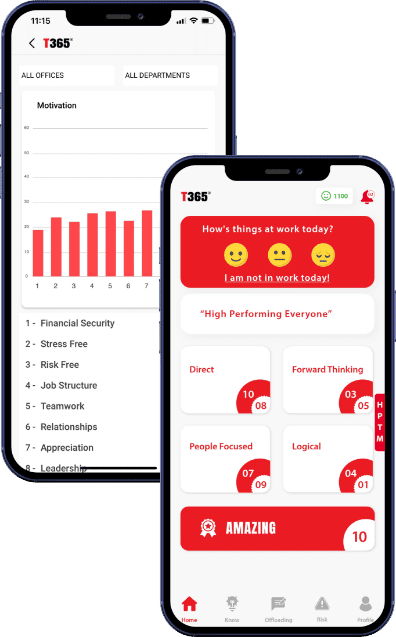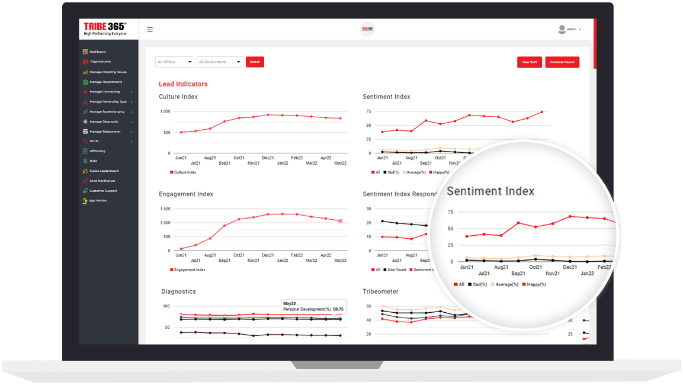What is Team Culture?
The definition of Team Culture is ‘the shared passion for achieving a fixed outcome and the beliefs and values which develop within a group of individuals who have come together to achieve the fixed outcome’.
In the many definitions you will find online, there is a lack of focus on the strength of belief in the outcome.
This is a mistake because if there is low belief in the outcome, there is no real ability to quickly assess and understand the culture in front of us.
Let’s examine that.
Building Bridges
Imagine that you are shoved into a room with 10 people and given the objective of building a bridge with Lego. And then imagine that no-one in that room cares about the achievement of that goal.
What is the culture of that team? We’d argue there isn’t a clear one.
Others may argue that the culture in this instance is characterised by lethargy and disconnection. That may be true – but there’s the possibility that it may not be too. And that lack of clarity is where we see the real flaw in the common definition of team culture.
We can’t have a definition for a car and not mention the engine, can we? The same principle applies to the definition of team culture. There has to be recognition of the strength of belief in the shared outcome, otherwise there is no drive. Does that make sense?
Understanding Shared Motivations
OK, so understanding culture relies on understanding what people’s shared motivation is.
If the people in the room tasked with building the Lego bridge had a motivation of conserving energy and only doing things they believed in, we would surely agree there is a shared understanding of the prevalent culture.
But simply putting people in a room and putting a task in front of a team does not develop culture. It may help us examine it, but it certainly doesn’t define it.

There could be a sudden shift in focus among the 10 individuals that sees the building of the bridge becoming of critical importance to each and every person in that room – and you’d see a culture develop very quickly. It would be noticeable, interaction would improve, and people would become a closer part of the group, or drift out and cease to participate.
What do you think?
Why Is Team Culture Important?
Team Culture is potentially more of a by-product of having more than one person in a room believing in achieving the same thing.
Team Culture will exist no matter what. The moment you have more than one person believing and building towards a fixed outcome, you will see a team culture develop.
OK, so it’s a by-product: so what? Well, that is a good point.
But consider this. Aligning passion and motivation has the power to create environments where people don’t drift in or out – teams come together and are strong. Think of what can be achieved by a group of impassioned individuals whose belief provides a resilience in everything they do. Think about the energy created by shared understanding in teams.
Imagine if every individual in a team felt the freedom to unleash their creativity and the full powers of their ability. What would the outcome be? If you think that sounds as incredibly exciting as I do, then you will see why real team culture is so important. Organisations that embrace this way of thinking will thrive.
And if that idea doesn’t excite you in the slightest, team culture clearly isn’t important to you, so you can just revert to Victorian workhouse methods of working. But good luck applying that model to the workforce of the future and employees that have been brought up to question things and believe in the ‘power of the individual’.

What’s The Right Team Culture?
- There are lots of historical models out there, and people will have many differing views.
- Try to ignore everything apart from the following words! A good or great culture comes down to:
- How much the individuals in a team believe in what they are doing
- How much everyone believes in the way they are doing it
- How well everybody balances everything else going on in their lives
- And, ultimately, how honest everyone is with each other That’s it!
- Understanding what the right culture is comes down to each team.
Every culture will be unique to each team. Every team will have different things they are trying to achieve; and, if not, they will have different team members and therefore unique ways of behaving as a group. Of course there are rare occurrences where two cultures are identical. But it’s rare.
How Do You Measure Where Team Culture Is?
- Team Culture is a measurement of the key principles above:
- How much do people believe in what they are trying to achieve? (Commitment)
- How much do people agree with the way the group does things? (Directed)
- How much do people balance their own distractions/conditions in the name of achieving the goals? (Selfless)
- How honest is everyone? (Honest)
- These are the main question areas you need to ask when assessing workplace culture. Understand how well your culture is doing by using these questions and fine-tuning them to suit your organisation.
We have a fully pre-prepared, ready-made questionnaire that we would be happy to share with you privately – just email us at team@tribe365.co if you would like us to send it to you.
But if you want to get into the real nitty-gritty and gauge how well or poorly your organisational culture is performing, you’ll need to ask us about our Tribeometer.
How Can You Create A Great Team Culture?
HPTM Leaders This is, in many ways, the greatest consideration. This is where you start the journey of loving life.
Build a shared understanding of why you are all doing what you are doing
Make sure it makes you all feel proud – and make sure it is a real thing, as opposed to a confusing abstract concept dreamed up by one individual

Make sure every activity is SMART
- Specific (clear on what’ s required, who owns it, when it’s due)
- Measurable (what does good look like? Regular checkpoints)
- Agreed by all (Everyone involved agrees)
- Relevant to Purpose/Vision (Every activity contributes to the achievement of the Vision/Purpose)
- Time Efficient (Everything is done in the shortest responsible space of time maximising energy, minimising latency)
Everyone removes/manages their own conditions
We are all human and have a lot going on. We all need to respect that and manage this 100%.
At times, we may be able to remove our own conditions (priorities/pre-formed ideas/distractions etc.) entirely – but let’s be realistic and understand that, as human beings, we are all individuals and need balance. Some things will be really important to us and some things won’t. For the things that aren’t important, simply drop them. For the things that are important, understand why and be proud of them and make sure to discuss them with your teams.
Prioritise honesty
We talk about honesty as a general thing, which it is, but the most essential honesty in teams is operational honesty.
We must all be committed to maintaining 100% positive energy at work. This way, we become vehicles for achievement. The moment we dip below 100%, we should discuss what’s stopping us and make adjustments as needed.
If these four principles are applied you will achieve a great team culture, without a doubt. This is part of the HPTM® (High Performing Team Member) theory and more info can be found on the HPTM® Leaders page.
Is There An Off-The-Shelf Solution That Helps Create A High Performing Team Culture?
The short answer is yes! And it’s called Culture Shift®, which is a six-week transformation programme that gives leaders the practical tools and insight to create high-performing teams. Is that of interest to you? If so, do please look at our Culture Shift page for full details.
At Tribe365® our vision and purpose is ‘High Performing Everyone’. And we will do everything we can to bring simplicity of high performance to everyone everywhere, no matter what.
We have developed all our product offerings to allow teams and individuals to take on as much or as little as they want. All our literature is available online, and we have launched podcasts to help you progress your approach to team culture.
Please do explore our website to learn more about High Performing Teams, and drop us an email at team@tribe365.co if you are ready to start your culture improvement journey.

Interested in finding out more?
Book a meeting in with the Tribe team
today on +44 (0) 1325734847 or at
team@tribe365.co

















